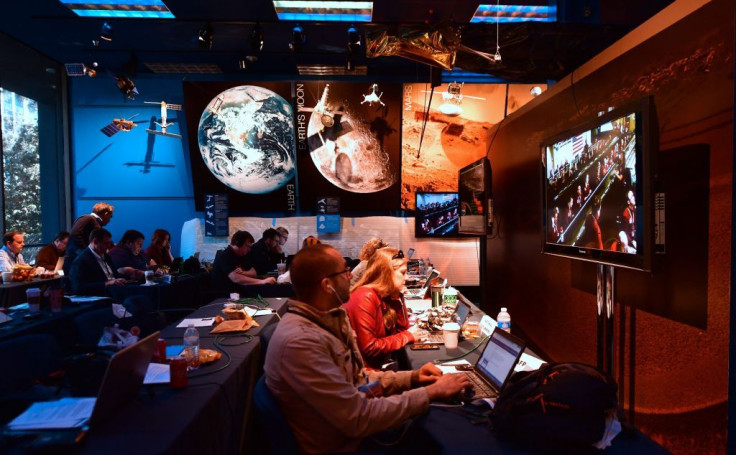Mars Opportunity Rover’s Final Message: Did It Hint At Alien Life?

Mars Opportunity Rover’s last message to NASA was a heartbreaking one: “My battery is low and it’s getting dark.”
The message, which was sent via signal eight months ago before the rover went silent, felt achingly human on the alien planet, affecting both old and current personnel who had worked on the Mars mission.
"Even though it's a machine and we're saying goodbye, it's still very hard and very poignant, but we had to do that. We came to that point," said project manager John Callas.
NASA announced the end of the Mars rover's mission in a statement released on its website.
So how did Opportunity die? According to ABC News, the solar-powered rover’s energy source drained after it was hit by one of the worst storms on the planet which practically cloaked Mars in darkness for months. Even when the sky cleared and NASA hoped that winds would clear the dust from the Opportunity’s solar panel, the rover remained silent.
The space agency sent out a series of commands that could try and reboot the space vehicle. They even played a number of songs from a playlist that included Billy Holiday’s “I’ll Be Seeing You” to help the rover wake up but to no avail.
The Opportunity rover was supposed to operate for only 90 days but it explored, sent photos and basically acted like a motorized geologist for almost 15 years. Opportunity, along with its long-gone sister, Spirit, gave us a spectacular glimpse of the Red Planet, and with it, the very possible idea that there could be alien life on Mars.
One of the most interesting photos taken by Opportunity is a rock covered by a cluster of spheres which was nicknamed “blueberries.”
According to the New York Times, Meridiani Planum, where the blueberries were found, is an interesting area for exploration. Not only does it offer a flat surface for the rover to explore, but it also has traces of iron oxide mineral known as gray hematite. The presence of gray hematite on Earth usually indicates the presence of water or lava.
Another explored area called the Matijevic Hill showed rocks containing clays, which NASA scientists believe can only be formed in pH-neutral water. The presence of clay suggests that the area could be an environment where life, or alien life, would survive.
So as we bid the Mars Opportunity Rover goodbye, we remember the amazing contributions it has made in space study, including the possibility of alien life actually existing.
© Copyright IBTimes 2024. All rights reserved.





















